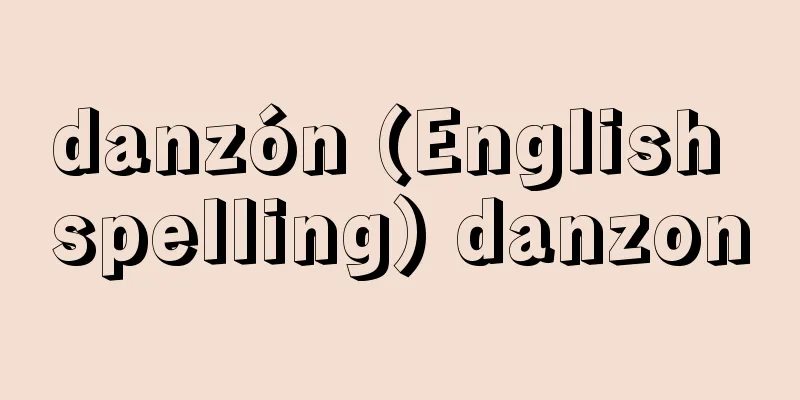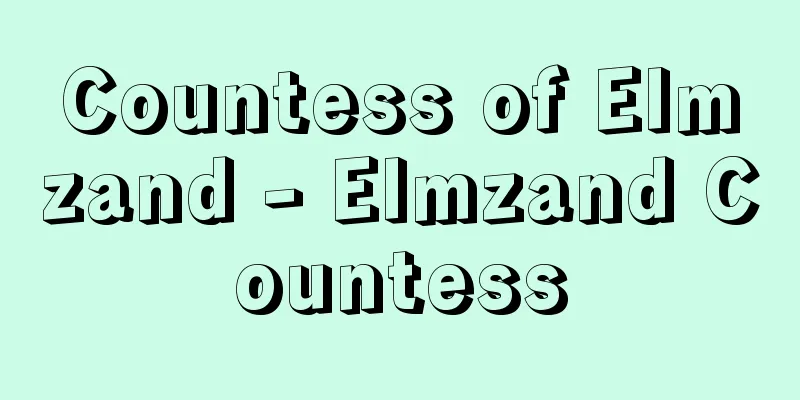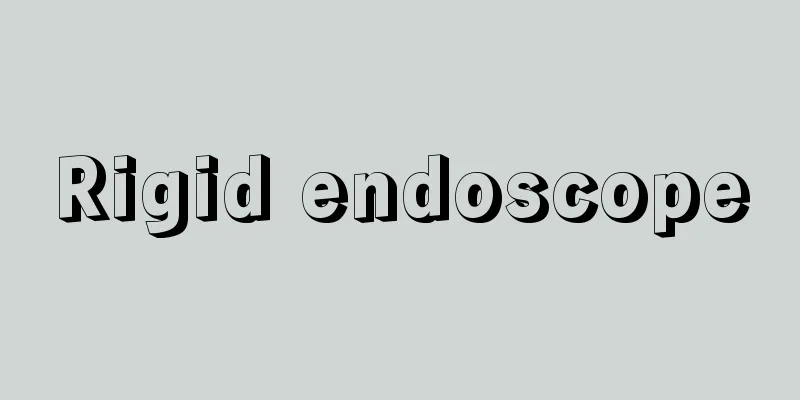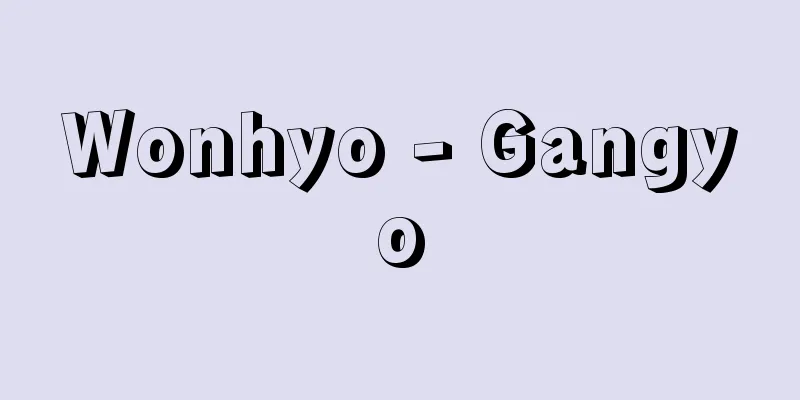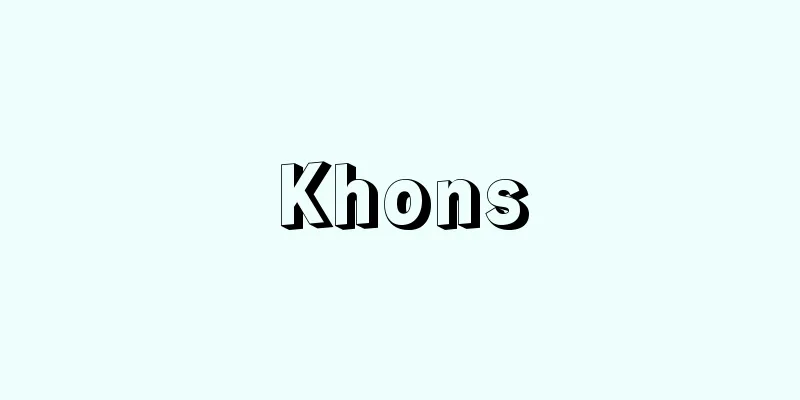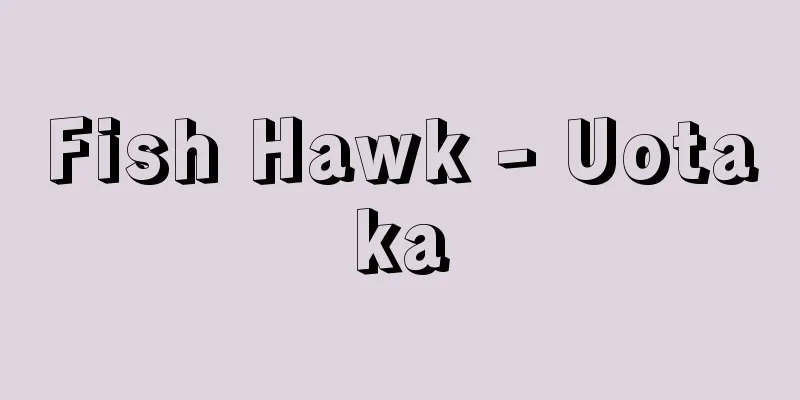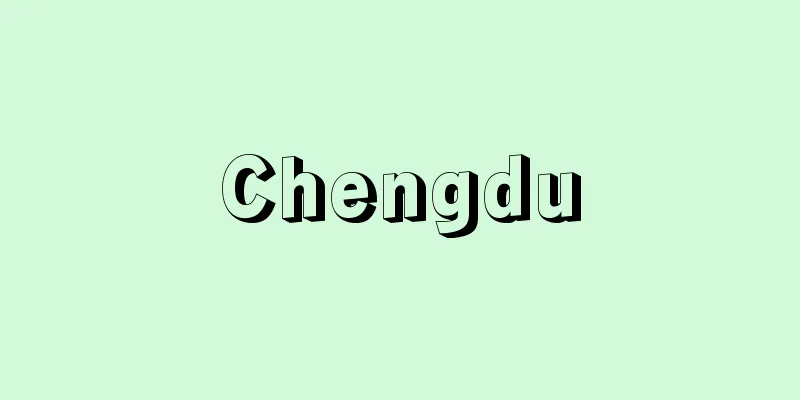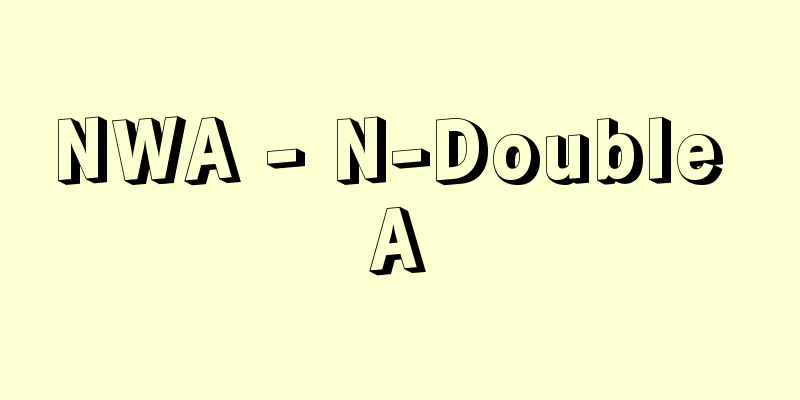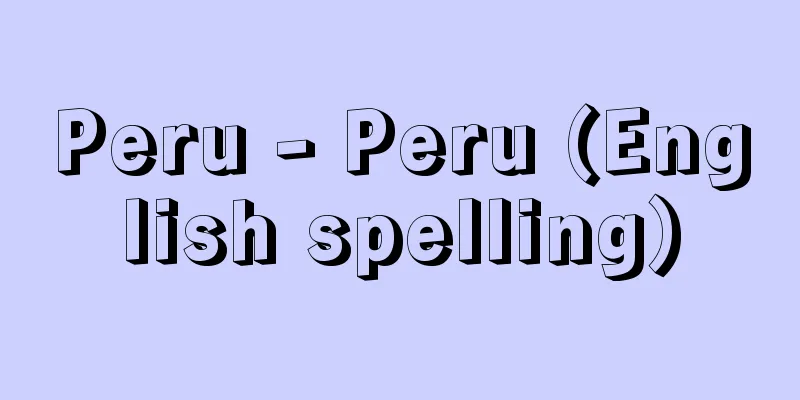Philosophy of education - English
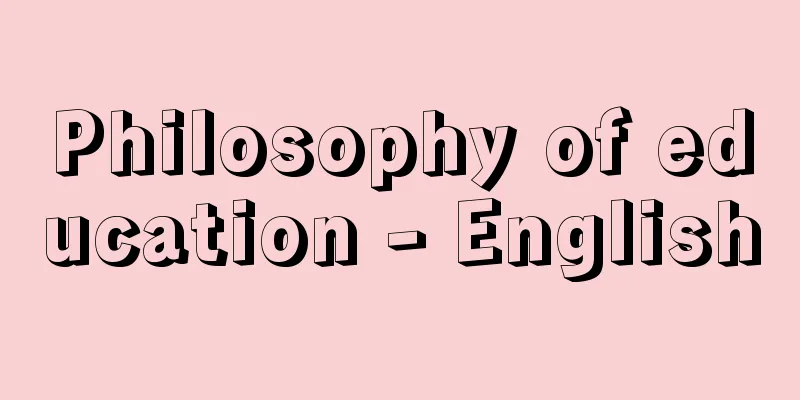
|
It is a field of pedagogy that studies educational problems using a philosophical attitude and method. In this case, the basic characteristic of a philosophical attitude and method is to fundamentally (fundamentally) and holistically (synthetically) question educational problems and gain recognition. However, there are various positions and claims in educational philosophy regarding the nature of the philosophical attitude and method, and the relationship between philosophy and pedagogy that arise from it. [Michio Ogasawara] Establishment and developmentPedagogy, as a theoretical discipline related to education, was established and developed in close connection with philosophy. Since Kant first lectured on pedagogy at the University of Königsberg (now Immanuel Kant Baltic Federal University) in 1776, pedagogy lectures were given by professors of philosophy until the end of the 19th century. In other words, pedagogy was considered as the application of general philosophical theory to educational problems, or as a special application of a particular philosophical system. In the first half of the 19th century, Herbart, the successor to Kant's lectures, was the first to assert that pedagogy should have its own concepts (its own object and method), and conceived of pedagogy as a systematic theory. However, this science of pedagogy was essentially nothing other than "philosophical pedagogy" (= educational philosophy) deduced from philosophy. Later, as inductive and empirical research into educational problems became more popular under the development and influence of empirical science, a separation was seen between philosophy and pedagogy, and the term "educational science" came to be used to refer to philosophical pedagogy. [Michio Ogasawara] Types and developmentsPhilosophical research on education is conducted with a variety of attitudes and methods. [1] When it is based on the influential philosophical ideas (theories) of the time, for example, in modern times, there are various types of educational philosophy, such as (1) those based on the philosophy of life, (2) those based on pragmatism, (3) those based on existential philosophy, (4) those based on analytic philosophy, and (5) those based on Marxism. [2] From the standpoint of understanding the role of education in relation to society, for example, the typology of Theodore Brameld (1904-1987) of the United States in the 1950s, such as (1) essentialism, (2) eternalism, (3) progressivism, and (4) revisionism, can be seen. Since the 1960s, rather than taking a stance of applying influential philosophical ideas, attempts have been made to innovate research into the philosophy of education by taking a position that interdisciplinary integrates the findings of various sciences such as biology, psychology, and sociology (educational anthropology) in the relatively unique field of education, which is the generation and formation of human beings, and by conceiving of educational science as "action research" from the standpoint of the social sciences. [Michio Ogasawara] The current state of educational philosophyIn Japan, various educational theories, ways of thinking, and methods have been explored in response to the phenomenon of "educational pathology," which has been getting worse since the late 1970s, but the problem phenomenon has taken the lead and effective solutions (theories) cannot be found. In this situation, clinical pedagogy, which sees educational problems as an opportunity for educators to generate meaning in education, has begun to attract attention. According to Norio Sumeragi (1940- ), clinical pedagogy was born out of the trend toward deeducationalization of education (study) and a crisis of "meaning" in education, and aims to shift the meaning surrounding education, to rediscover the meaning of education amid this dramatic change in meaning, and to obtain a new perspective on understanding education. In this article, we position educational philosophy as the fundamental and fundamental field of pedagogy, and discuss it from that standpoint. However, from this standpoint, the boundary between educational philosophy and pedagogy is extremely vague today. Therefore, please also refer to the pedagogy section. From this standpoint, the following issues can be considered regarding the characteristics and functions of educational philosophy in pedagogy research. [Michio Ogasawara] assignmentPhilosophy of education, which has developed with the primary objective of elucidating the essential role of education and understanding education theory in a fundamental and systematic way, is now expected to grasp the entire reality of education in a structural way, to pursue the fundamental meaning of education (what is education) and its purpose (what is education for), and at the same time to unify and structure the various educational sciences, which are currently highly specialized, from which fundamental proposals for solving educational problems and for future directions can be made.Furthermore, the task of philosophy of education will also include the strict definition of educational terminology and the critical confirmation (theoretical scrutiny) of past and present educational theories and ideas. [Michio Ogasawara] "Educational Anthropology" by Mori Akira (1961, Reimeishobo)" ▽ "Inatomi Eijiro Collected Works, Volume 6: History of Western Educational Thought" (1980, Gakuensha)" ▽ "Educational Philosophy" by Murata Noboru (1983, Toshindo)" ▽ "Theoretical-Practical Issues in Educational Studies" by Ogasawara Michio (1985, Gakubunsha)" ▽ "Educational Philosophy" by Ogasawara Michio (1991, Fukumura Publishing)" ▽ "Clinical Pedagogy" by Wada Shuji and Kokio (1996, Academia Publishing)" ▽ "A Study of Psychological Science in Education" by Ogasawara Michio (1999, Tamagawa University Press)" ▽ "Dictionary of Educational Thought" edited by the Society for the History of Educational Thought (2000, Keisoshobo)" ▽ "Introduction to Educational Studies, Vol. 1" by Murai Minoru (Kodansha Academic Library) [References] | | | | | | | | |Source: Shogakukan Encyclopedia Nipponica About Encyclopedia Nipponica Information | Legend |
|
教育の問題を哲学的態度・方法によって研究する教育学の一領域をいう。その際、哲学的態度・方法の基本的特徴として、教育の問題を根源的(根本的)、全体的(総合的)に問い、認識を獲得することがあげられる。ただ、哲学的態度・方法のあり方をめぐって、またそれに起因する哲学と教育学の関係から多様な教育哲学の立場、主張がある。 [小笠原道雄] 成立・発展教育に関する理論的な学問としての教育学は哲学との深い結び付きのなかで成立、発展をみた。1776年、カントがケーニヒスベルク大学(現、イマヌエル・カント・バルト連邦大学)において初めて教育学の講義を開講して以来、19世紀末まで、教育学の講義は哲学教授によって行われていた。 つまり、教育学は一般哲学理論の教育問題への適用として、あるいは特定の哲学体系の特殊な応用と考えられていた。19世紀前半、カントの講座の継承者であるヘルバルトによって、初めて教育学が固有の概念(独自の対象と方法)をもつべきことが主張され、体系的理論としての教育学が構想された。しかしその学としての教育学も本質的には哲学から演繹(えんえき)された「哲学的教育学」(=教育哲学)にほかならなかった。その後、経験科学の発達とその影響のもとで、教育の問題に関する帰納的、実証的な研究が盛んになるにつれて、哲学と教育学の分離がみられ、哲学的教育学に対して「教育科学」という名称が用いられるようになる。 [小笠原道雄] 類型・展開教育の哲学的研究は多様な態度・方法によって行われているが、〔1〕時代の有力な哲学思想(理論)に依拠して行われる場合には、たとえば、現代では(1)生の哲学によるもの、(2)プラグマティズムによるもの、(3)実存哲学によるもの、(4)分析哲学によるもの、(5)マルクス主義によるものなど、教育哲学の諸類型がみられるし、〔2〕教育の役割を社会との関連においてとらえる立場からは、たとえば、1950年代アメリカのブラメルドTheodore Brameld(1904―1987)のように、(1)本質主義、(2)永遠主義、(3)進歩主義、(4)改造主義の類型化もみられる。 1960年代から、有力な哲学思想の適用、応用という立場より、むしろ広く人間の生成、形成という教育の相対的に独自な領域に対して、生物学、心理学、社会学などの諸科学の成果を学際的に統合する立場(教育人間学)や、社会科学の立場から「行為研究(アクション・リサーチ)」としての教育科学の構想が企図され、教育哲学研究の革新が図られた。 [小笠原道雄] 教育哲学の現状日本の場合、1970年代後半から深刻化する「教育病理」現象に対して、さまざまな教育理論、思考、方法が模索されるが、問題現象が先行して有効な解決策(理論)をみいだしえない状況である。そのようななかで、教育問題を教育者にとっての教育の意味生成の契機としてとらえる臨床教育学が注目されるようになった。皇紀夫(すめらぎのりお)(1940― )によれば、臨床教育学は教育(学)の脱教育化と教育における「意味」の危機の動向のなかで誕生したのであり、教育をめぐる意味の転換、意味の激変のなかで改めて教育の意味の発見、教育の理解の新たな視点の獲得が志向されているという。 なお、本稿では教育学の原理的、基礎的領域として教育哲学を位置づけ、その立場から論述しているが、この立場にたてば、今日、教育哲学と教育学の境目はきわめて曖昧(あいまい)となる。したがって教育学の項目も参照していただきたい。またこのような立場からは、教育学研究における教育哲学の特徴、機能をめぐって、以下のような課題が考えられよう。 [小笠原道雄] 課題教育作用の本質的解明と教育理論の基礎的、体系的把握を主たる課題として発展してきた教育哲学は、今日、教育現実の全体を構造的に把握し、教育の根本的な意味(教育とは何か)、目的(なんのための教育か)を追究し、同時に、極度に専門分化している教育諸科学の全体を統一的に構造化し、そこから教育問題の解決と将来の方向に関する原理的な提案がなされることが期待されている。さらに教育に関する諸用語の厳密化、過去・現在の教育学理論・思想の批判的確認(学理論的精査)も教育哲学の課題であろう。 [小笠原道雄] 『森昭著『教育人間学』(1961・黎明書房)』▽『『稲富栄次郎著作集 第6巻 西洋教育思想史』(1980・学苑社)』▽『村田昇編『教育哲学』(1983・東信堂)』▽『小笠原道雄著『教育学における理論=実践問題』(1985・学文社)』▽『小笠原道雄著『教育哲学』(1991・福村出版)』▽『和田修二・皇紀夫編『臨床教育学』(1996・アカデミア出版会)』▽『小笠原道雄著『精神科学的教育学の研究』(1999・玉川大学出版部)』▽『教育思想史学会編『教育思想事典』(2000・勁草書房)』▽『村井実著『教育学入門 上』(講談社学術文庫)』 [参照項目] | | | | | | | | |出典 小学館 日本大百科全書(ニッポニカ)日本大百科全書(ニッポニカ)について 情報 | 凡例 |
>>: Imperial Rescript on Education - Kyoikuchokugo
Recommend
Health education
Health education or hygiene education is a genera...
nalorphine
...Acute poisoning due to large doses can cause c...
Data terminal equipment (data terminal)
A device for remotely inputting and outputting dat...
Stanisław August Poniatowski
1732‐98 The last king of Poland. Reigned 1764-95. ...
Atrasov, VV (English spelling) AtrasovVV
...The Matsumae Domain had been indirectly tradin...
Outer Shrine - Totsumiya
[1] [noun] A palace established outside the Imperi...
Zixia - Shika
A scholar of the Spring and Autumn period in Chin...
Fibrolysis
…Granulation tissue is composed mainly of newly f...
Longevity - Nichiji
Years of birth: unknown. A Nichiren sect monk from...
Exchange and division
A method or means for consolidating (consolidating...
That song dreamland - That song dreamland
Kabuki Kyogen. Sewamono. 2 acts. Written by Fukumo...
Minritsu
= Daiminritsu (Great Ming Vinaya) ※Essays, Keien Z...
Aurora (mythology) (English spelling) Aurora
… Greek goddess of dawn. Roman Aurora. Daughter o...
General Headquarters
…It is an abbreviation of General Headquarters. I...
Ship type - Senkei
(1) The three-dimensional shape of a ship. It mai...
